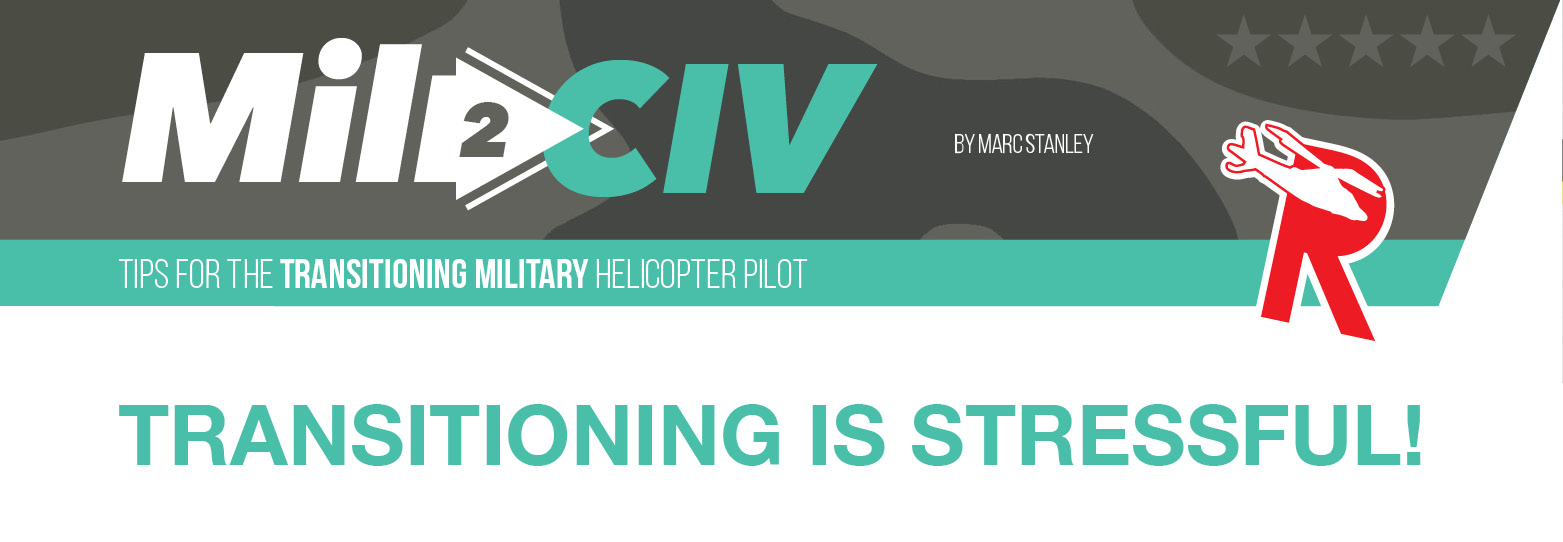|
Feb
07
2022
|
|
Posted 4 years 15 days ago ago by Admin
|
|

I remember the day my S1 (personnel officer) came into the standardization office and handed me my retirement orders. She asked if I was excited. I had been excited when I submitted for retirement, but now that the orders were in my hand, I was wondering what the hell I did!
It doesn’t matter how prepared you are for your transition; you will feel stress at some point during the process and it isn’t quickly relieved by getting some exercise and sleep. Transition stress is an increased feeling of pressure, anxiety, and/or loss of purpose and direction triggered by a significant period of change or adjustment. Specifically when talking about veterans, transition stress refers to the difficulty of adapting to life after discharge. It is a longing for the way service members lived while on active duty. Other symptoms include depression, loss of identity, difficulty finding meaningful employment, difficulty navigating relationships, and difficulty relating to civilians. Transitional stress is an “identity crisis.” Basically, when you are transitioning, you are losing your identity, and being forced to develop a new one without the support network you had while in the military. If there is anything positive about your transition, it is that everyone goes through it, so you are not alone.
Military service is an experience unlike any other and military life is significantly different than civilian life. While on active duty, service members abide by directives and orders given to them. In civilian careers, this level of structure does not exist, which can increase stress. Some transitioning service members have to determine how to translate their unique military proficiencies into relatable civilian skills and/or (re)learn skills that weren’t required in the military. Many service members enlisted after high school and will be learning many civilian skills for the first time, such as learning to relate to civilians that have never served, finding a way to transfer skills learned in the military into their new career, and establishing structure and routine on their own. In addition to work life, the service member may be settling into a new geographic location and need to create a their community support network (e.g., doctor, dentist, church, barber/hair stylist).
Transitional stress may lead you to accept the first job that comes along, which might not be a bad thing, but more than likely it will not be a good fit for you, or you pick a job that doesn’t utilize your skills, or one that you just aren’t excited about. A quick piece of advice, I know it's stressful trying to find a job while transitioning, but trust your gut. If a situation doesn’t feel right, it probably isn’t.
Plan and prepare for your transition in advance. If you haven’t already done so, begin to develop a network of professionals in your chosen industry. Plan on attending industry events and conventions, visit local companies and sites where you would like to live, and as far as the helicopter industry is concerned, attend events like Rotorcraft Pro’s annual HeliSuccess career development and networking event and/or Helicopter Association International’s Heli-Expo and their Mil2Civ transition workshop. There are many great things about these events, but when talking about transition stress, many veterans that have already made a successful transition are always in attendance. In my experience, they are more than happy to talk and guide you with your transition. For many events/conventions, spouses can also attend. They can be valuable in seeing and hearing what is available, may get information you missed, or just give you a different perspective.
Transitional stress is something every veteran has to experience at one point in their life. Hopefully you will be a little better prepared for it by knowing it is coming, how to prepare for it, and realizing that others have gone through it too. So don’t be afraid to reach out to your fellow veterans; they have your back and you have theirs.
About the author: Marc Stanley retired from the U.S. Army in 2015 after 26 years, and transitioned into civilian life to become a corporate pilot flying the AW139. He regularly teaches military-to-civilian transition classes at industry events, and volunteers with veterans outreach programs.
READ MORE ARTICLES IN THE NOV/DEC ISSUE OF ROTORCRAFT PRO